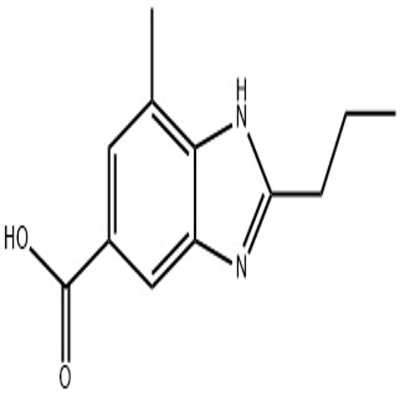-
Categories
-
Pharmaceutical Intermediates
-
Active Pharmaceutical Ingredients
-
Food Additives
- Industrial Coatings
- Agrochemicals
- Dyes and Pigments
- Surfactant
- Flavors and Fragrances
- Chemical Reagents
- Catalyst and Auxiliary
- Natural Products
- Inorganic Chemistry
-
Organic Chemistry
-
Biochemical Engineering
- Analytical Chemistry
-
Cosmetic Ingredient
- Water Treatment Chemical
-
Pharmaceutical Intermediates
Promotion
ECHEMI Mall
Wholesale
Weekly Price
Exhibition
News
-
Trade Service
2,4-Diamino-6-ethoxy-pyrimidine (DEP) is a chemical compound that has been widely used in various applications in the chemical industry.
It is an organic compound that is synthesized from multiple chemical precursors and is commonly used as an intermediate in the production of various chemicals, pharmaceuticals, and other products.
Safety of 2,4-Diamino-6-ethoxy-pyrimidine
2,4-Diamino-6-ethoxy-pyrimidine (DEP) is a highly reactive chemical that can react rapidly with other chemicals and substances in the presence of heat, moisture, or other conditions.
This reactivity can lead to the formation of hazardous byproducts, such as explosive or flammable compounds, which can pose a significant risk to human health and the environment.
Due to the potential hazards associated with DEP, it is essential to take appropriate safety measures when handling, storing, and using this chemical.
Chemical manufacturers, processors, and users must comply with the relevant safety regulations and standards, such as OSHA and EPA regulations, to ensure the safe handling of DEP.
The safe handling of DEP requires proper storage and transportation practices.
The chemical should be stored in a cool, dry, and well-ventilated area, away from heat, sparks, and other sources of ignition.
The containers used for storing DEP should be made of puncture-resistant materials, and the containers should be labeled with appropriate hazard warnings and safety instructions.
DEP should be transported in accordance with the relevant regulations and standards, and the transport vehicles should be properly equipped with safety equipment, such as fire extinguishers and spill kits.
The chemical should be transported in suitable packaging materials that are resistant to moisture and mechanical damage.
Proper protective measures are essential for ensuring the safety of workers who handle DEP.
Workers should wear appropriate personal protective equipment (PPE), such as gloves, eye protection, and respirators, to prevent skin contact, eye irritation, and inhalation of the chemical.
In addition, workers should receive proper training on the safe handling, storage, and use of DEP, and they should be familiar with the appropriate safety procedures and emergency response plans.
The employer should provide training materials, such as safety data sheets (SDS), that provide detailed information on the hazards and safe handling practices for DEP.
Finally, it is essential to properly dispose of DEP and its waste products to prevent environmental pollution and risks to human health.
The chemical waste should be collected and transported to authorized waste disposal facilities, where it can be safely treated, stored, and disposed of in compliance with the relevant regulations and standards.
Conclusion
2,4-Diamino-6-ethoxy-pyrimidine (DEP) is a highly reactive chemical that can pose significant hazards to human health and the environment if not handled safely.
The safe handling of DEP requires proper storage, transportation, and use practices, as well as appropriate protective measures for workers and proper disposal of waste products.
Chemical manufacturers, processors, and users must comply with the relevant safety regulations and standards to ensure the safe handling of DEP.
Employers must provide proper training and safety equipment to workers, and workers must be familiar with the safe handling practices and emergency response plans for DEP.
Proper safety measures and practices are critical for ensuring the safety of workers and the public and preventing environmental pollution and risks to human health.





![benzyl N-{2-[4-(4,4,5,5-tetramethyl-1,3,2-dioxaborolan-2-yl)phenyl]ethyl}carbamate](https://file.echemi.com/fileManage/upload/goodpicture/20210823/m20210823171124543.jpg)

